Preparing for a job interview is a standard step in the application process here in Slovakia. This meeting serves as your chance to present yourself to the employer and learn more about the available position and the company culture. It’s equally important for the employer, as it allows them to meet potential candidates in person, assess their skills, inquire about specifics from their CV, and gauge their motivation for the role.
For graduates and young professionals, interviews can often feel overwhelming. You’re striving to impress a potential employer, even when you may lack extensive experience. However, the anxiety and nerves that typically accompany interviews can be eased with proper preparation.
Here are some key strategies to help you get ready for your job interview, reduce emotional tension, and pave the way for a successful outcome:
Research the Company Before Your Interview
Take the time to explore their website and social media profiles to understand their mission, values, and activities. Demonstrating this knowledge will reflect your genuine interest and motivation to join their team.
Be prepared for the possibility that the employer may ask you some basic questions about the company and your vision for the role. Additionally, make sure to thoroughly review the job description and working conditions. It’s also a good idea to prepare some questions of your own to ask the employer during the interview. This will not only show your engagement but also help you assess if the company is the right fit for you.
Arrival
Arriving on time is crucial; it’s best to reach the interview location well ahead of the scheduled time. Dress appropriately based on the job role you’re applying for. Formal attire is recommended for interviews at banks, corporations, or government institutions, while a smart casual look is perfectly acceptable for smaller, less formal companies.
If your interview is conducted online, prepare in advance by ensuring you have a reliable internet connection. Familiarise yourself with the online platform that the employer will use for the interview, so you can navigate it confidently.
Additionally, bring along a pen and notebook to jot down any notes or questions that arise during the conversation. This not only shows your engagement but also helps you remember important points discussed.
Understanding the Interview Process
Typically, the interview will be led by a human resources (HR) representative, but you may also encounter team members who are involved in the hiring process. Depending on the role and the size of the company, management representatives may join the interview as well.
Upon meeting with the company’s representatives, it’s customary to greet them with a handshake. The employer will likely provide an overview of the interview process, including its structure and who will be present. In some cases, the interview may be divided into several segments, which could include practical exercises. These tasks might involve role-playing scenarios, using specific software, or demonstrating proficiency in a foreign language relevant to the job, such as Excel or English.
At the beginning of the interview, you can expect the employer to ask you for a brief introduction, during which you’ll explain why you’re interested in this particular position.
Following your introduction, the employer will pose questions aimed at assessing your motivation and suitability for the job. While the specific questions may vary by industry and role, you might encounter some common inquiries, such as: Do you have experience in a similar role? What attracts you to our company as an employer? Why should we consider hiring you? How do you approach problem-solving? Can you identify one of your strengths and one weakness?
It’s important to reflect on these questions in advance and formulate your answers. This preparation will enable you to respond promptly and present yourself as both professional and genuine. However, remember that interviews are a two-way street, and you should also prepare your own questions.
Consider asking about the following: What does a typical workday look like? What will my initial tasks involve? Will I be working as part of a team or independently? Does the company offer any benefits or opportunities for career development?
By asking questions, you demonstrate your genuine interest in the role while also clarifying your own capabilities and expectations.
After the Interview: What to Do Next
The choice is yours. It’s quite normal to find yourself pondering questions you might have wanted to ask or reflecting on past interactions, considering how you might have expressed yourself differently. However, it’s important to remember that dwelling on these thoughts is unnecessary, as you can’t change the past. That said, sending a polite follow-up email with a thank-you note can be beneficial. It not only shows your appreciation but also highlights your enthusiasm for the position.
Haven’t received a response by the deadline? This can happen for a number of reasons, such as competition among multiple candidates, unforeseen complications, or even illness. There’s no need to panic or jump to conclusions. A more effective approach is to gently remind yourself of the situation and follow up to inquire about the progress.
Did they reach out to you, but you weren’t satisfied with their response? While it’s not a pleasant experience, these situations can occur. Try to view it from a different perspective: you’ve gained valuable experience and learned about the interview process, along with areas where you could improve your preparation. Alternatively, consider contacting the company to inquire about how you fell short of their expectations. Feedback from a company where you applied can be a valuable resource.
However, don’t lose heart and try not to take an unsuccessful outcome personally. You can find helpful tips on job searching in Slovakia on our website.
This article was produced as part of the Pathways initiative supported by UNICEF. For more information about the project, please visit UNICEF’s digital one–stop-shop: https://akodobrezesi.sk/ua/
